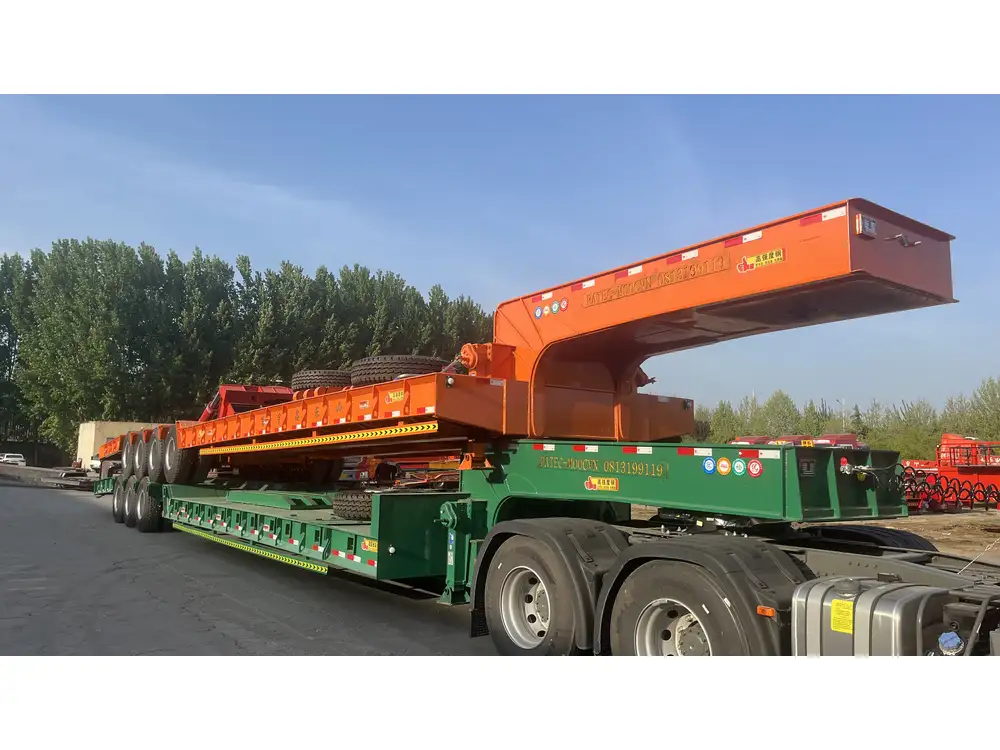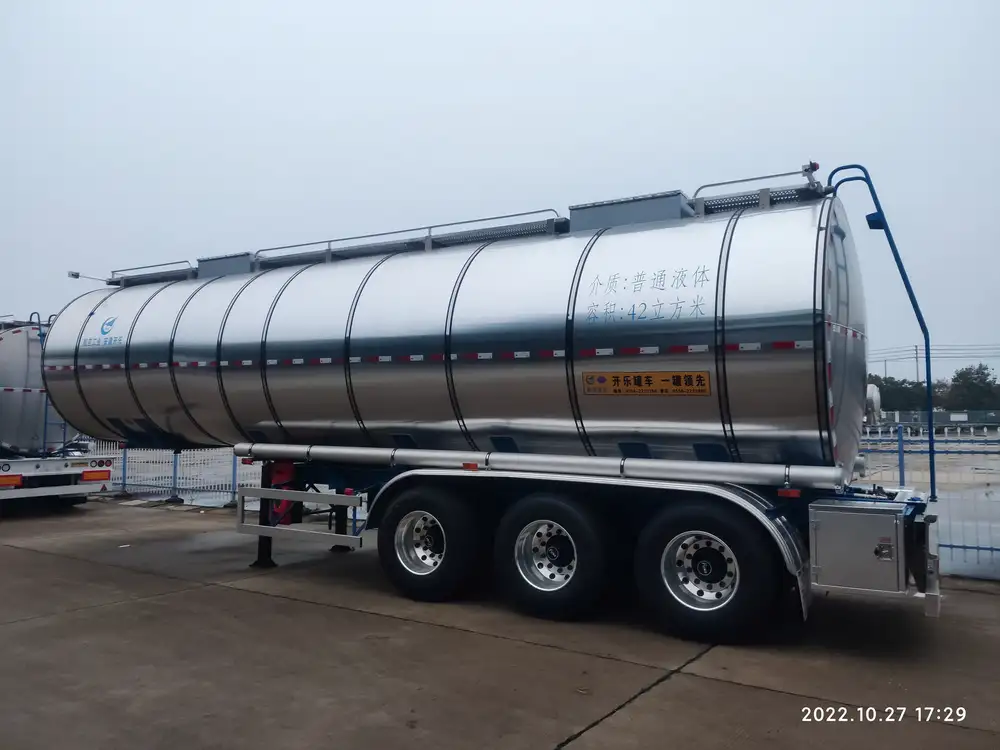In the world of commercial transportation, the regulations surrounding different types of cargo can be complex and nuanced. For manufacturers and operators of pneumatic trailers, a common question arises: Do you need a tanker endorsement for pneumatic trailers? This article explores this critical topic, dissecting the nuances of endorsements, regulations, and best practices for operators in this specialized field.
What Are Pneumatic Trailers?
Pneumatic trailers, commonly used in the transportation of dry bulk materials, are lightweight, versatile, and designed to deliver high-efficiency bulk powder transport. These trailers utilize pressure differentials to move materials such as cement, fertilizers, and plastics. Given their unique operational characteristics, understanding the regulatory requirements, particularly around driver endorsements, is essential for compliance and safety.
Key Features of Pneumatic Trailers
| Feature | Description |
|---|---|
| Construction | Strong, durable materials designed for bulk material transport |
| Operation Mechanism | Utilizes air pressure to load and unload materials |
| Capacity | Typically between 20 to 30 tons of product payload |
| Customization | Options for different bulk materials and pneumatic systems |

Understanding Endorsements for Commercial Drivers
To operate a pneumatic trailer legally, drivers must possess a Commercial Driver’s License (CDL). Depending on the cargo type, additional endorsements may be required. Endorsements categorize the type of cargo a driver can legally transport, ensuring they are equipped to handle specific challenges associated with various materials.
Types of CDL Endorsements
| Endorsement | Type of Cargo | Description |
|---|---|---|
| H | Hazardous Materials (Hazmat) | Required for transporting hazardous materials |
| N | Tank Vehicles | For driving vehicles designed to transport liquids in tanks |
| X | Combination of Hazmat and Tank | For those needing to transport both hazardous materials and liquids |
| T | Double/Triple Trailers | Required for towing multiple trailers |
Do You Need a Tanker Endorsement for Pneumatic Trailers?
The necessity of a tanker endorsement when operating a pneumatic trailer primarily hinges on the materials being transported. Generally, pneumatic trailers are used for dry bulk transport rather than liquids, which suggests that a tanker endorsement should not be necessary. However, several conditions and exceptions warrant closer examination:

1. Type of Cargo
While pneumatic trailers typically transport dry bulk materials, there may be specialized scenarios where these trailers could contain liquids or other materials that could fall under tanker regulations. If a driver is transporting a liquid substance in a pneumatic trailer, even if this is rare, they will need the proper tanker endorsement.
2. Regulatory Variations by State
Regulations surrounding endorsements can vary from state to state. It is crucial for operators to consult their local Department of Motor Vehicles (DMV) or regulatory authority to obtain specific guidance. Some states may have additional requirements for pneumatic trailer operations that need to be adhered to.
3. Insurance and Liability Considerations
Even if a tanker endorsement isn’t mandated for pneumatic trailer operations under standard conditions, some insurance policies may require drivers to have additional endorsements to ensure comprehensive coverage. It’s essential to verify with insurance providers to prevent any potential gaps in coverage during transportation.

Safety Protocols in Operating Pneumatic Trailers
Whether or not a tanker endorsement is required, operators must adhere to strict safety protocols when handling pneumatic trailers. Here are best practices:
1. Pre-Trip Inspections
Conduct thorough inspections of the trailer and towing vehicle. Check brakes, tires, and pneumatic components to ensure all systems are functioning correctly.
2. Proper Loading Procedures
When loading dry bulk materials, use the appropriate settings for pressure and ensure even distribution to prevent instability during transport.

3. Training and Certification
Invest in comprehensive training for all drivers, focusing on the particular challenges presented by pneumatic trailers. This training should also include emergency response in case of material spills or accidents.
Maintenance and Best Practices for Pneumatic Trailers
Maintaining pneumatic trailers involves attention to specific details that impact longevity and operational efficiency.
Regular Maintenance Checklist
| Maintenance Task | Frequency | Importance |
|---|---|---|
| Inspect Air Systems | Monthly | Ensures proper pressure and function |
| Check for Material Residue | After Each Load | Prevents contamination and promotes product quality |
| Brake System Inspection | Before Long Trips | Critical for safety, especially when loaded |
| Tire Pressure Checks | Weekly | Supports optimal fuel efficiency and handling |

Troubleshooting Common Pneumatic Trailer Issues
Operators may encounter various issues while using pneumatic trailers. Here are solutions for common problems:
Problem: Inconsistent Air Pressure
- Solution: Regularly inspect the compressor and hoses for leaks; replacing worn parts promptly can alleviate pressure discrepancies and enhance loading/unloading efficiency.
Problem: Material Blockage
- Solution: Implement regular cleaning schedules for the trailer’s interior and utilize vibration or agitation systems when loading heavy materials to facilitate even flow and prevent blockages.

The Impact of Regulations on the Pneumatic Trailer Industry
The complexity of trucking regulations affects operators’ efficiency and profitability. Regulations on endorsements, maintenance, and safety practices are increasingly stringent, requiring a keen understanding of compliance issues.
Future Trends in Pneumatic Transport Regulations
- Increased Safety Protocols: Anticipate heightened scrutiny around safety measures, especially in the transport of sensitive materials.
- Technological Advancements: Innovations in trailer technology, such as better sensing systems for pressure and material monitoring, will likely result in enhanced regulatory requirements.
- Environmental Standards: Emerging regulations may focus on reducing emissions and promoting sustainable practices within the transportation industry.
Conclusion: Navigating Pneumatic Trailer Operations
Understanding the necessity of a tanker endorsement for pneumatic trailers is essential for ensuring compliance and optimizing operations. While generally, a tanker endorsement is not required for dry bulk transport, regulatory nuances at state and local levels may present exceptions that demand attention.
By adhering to safety protocols, maintaining equipment meticulously, and staying informed about both endorsement requirements and evolving regulations, operators will position themselves for success within the pneumatic transport industry.

Final Thoughts
In the landscape of transporting dry bulk materials, staying compliant is as critical as ensuring safety and efficiency. We encourage individuals and businesses to keep updated on regulatory changes, further their training, and ensure their teams are equipped with the knowledge and skills necessary for safe, effective operations. By fostering a culture of compliance and safety, operators can help set the standard in the pneumatic trailer sector while securing their position in an ever-competitive market.



